

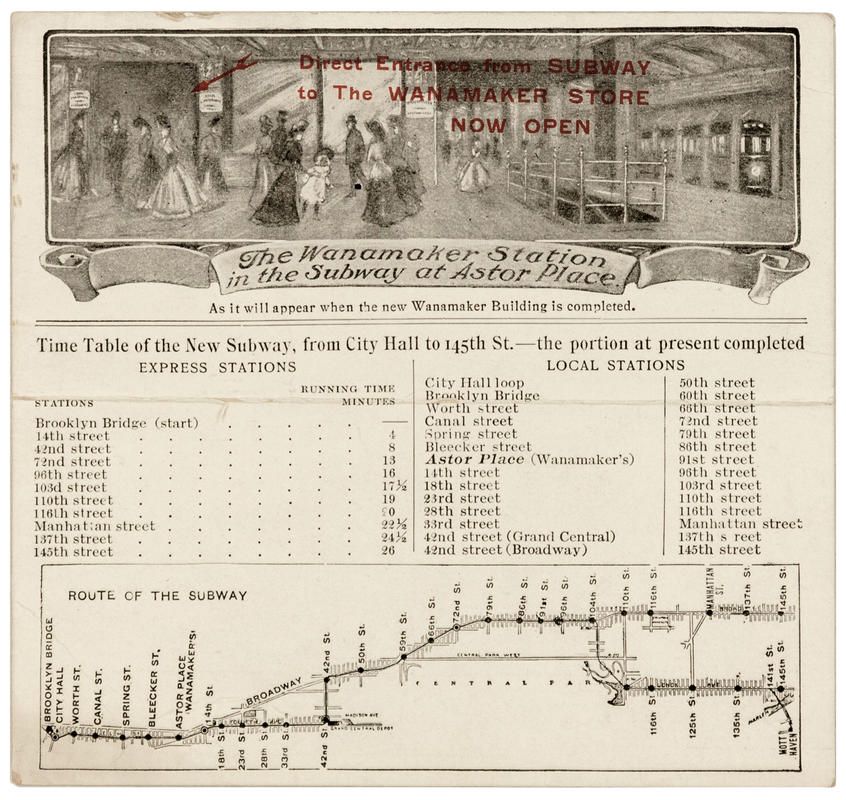
Before smartphones, Google, and digital displays in subway stations, riders had to rely on old-fashioned paper maps to navigate the city’s subway system. One of the first subway maps distributed in 1904, the year that the Interborough Rapid Transit system (IRT) opened to the public, is part of the collection of the Martayan Lan Gallery, a rare antique books and maps dealer in Midtown. This piece was displayed in the 2019 exhibit New Amsterdam To Metropolis: Historic Maps of New York City, which showed the transformation of New York City from a small European-controlled colony to a sprawling city of skyscrapers through rare maps from the 16th to 20th centuries.
The portable “Vest Pocket Subway Guide” was one of the most unique pieces in the exhibit. It is one of only two that are known to exist and recently sold for thousands of dollars. The guide was created by Wanamaker’s department store and mailed to its customers. Subway riders had direct access to a Wanamaker’s location at the Astor Place subway station, as illustrated on the promotional map. You can see on the map that the line originated at Brooklyn Bridge City Hall Station, which was decommissioned in 1945, and traveled north to 145th Street. Wanamaker knew that the subway would grow, noting that their map showed the “portion at present completed.” Since its opening day in 1904, the New York City has expanded to become the largest rapid transit system, by area, in the world.
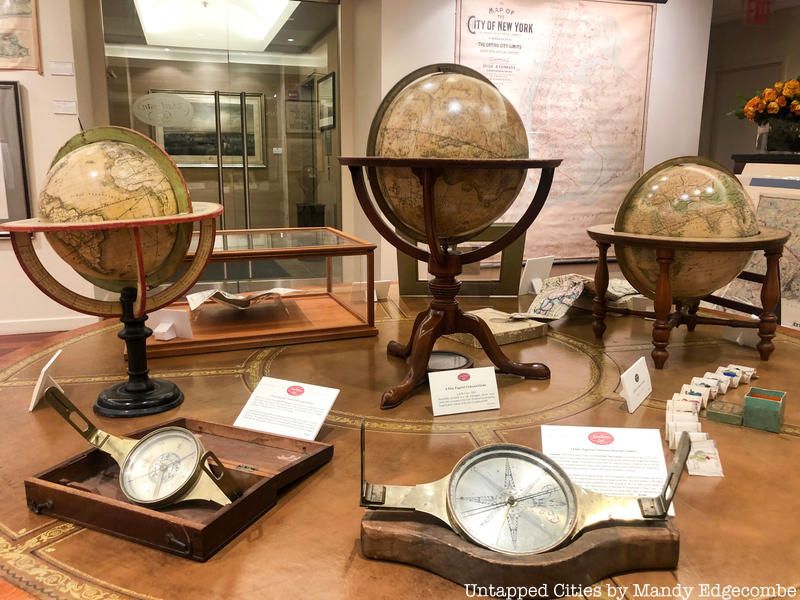
Beyond the tiny subway map, the Martayan Lan exhibit boasted many other pieces to excite lovers of New York City history. The oldest map in the Martayan Lan Gallery exhibit dates back to 1548 and is from Gastaldi’s edition of Ptolemy’s atlas. It depicts New York as seen and drawn by Gionvanni Verrazano during his exploration of the area in 1524. This piece is described as “the earliest acquirable map” to focus on the East Coast of North America. The most recent map is a color lithograph of Midtown Manhattan from 1964 which shows how the city grew upwards with towering skyscrapers. More fun finds in the gallery include a 1821 survey map created by John Randel, Jr., the man who designed Manhattan’s street grid, and a portable Globe!
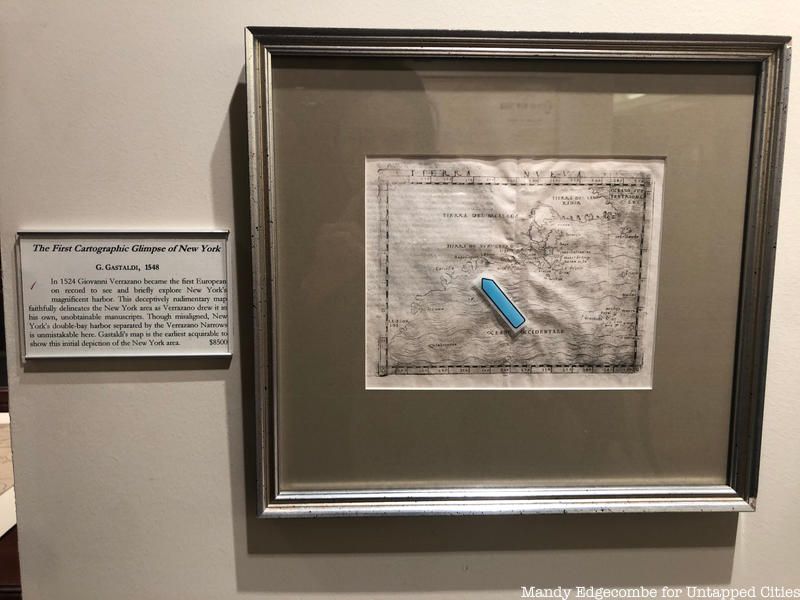
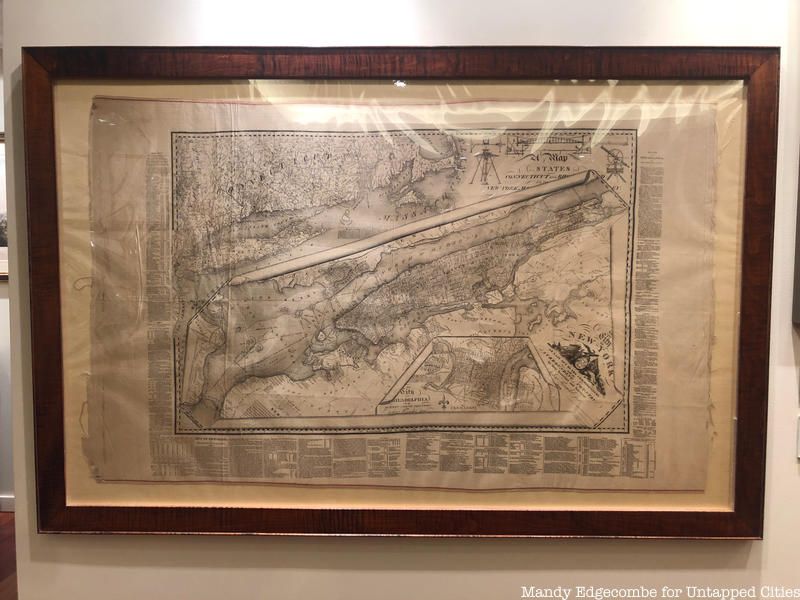
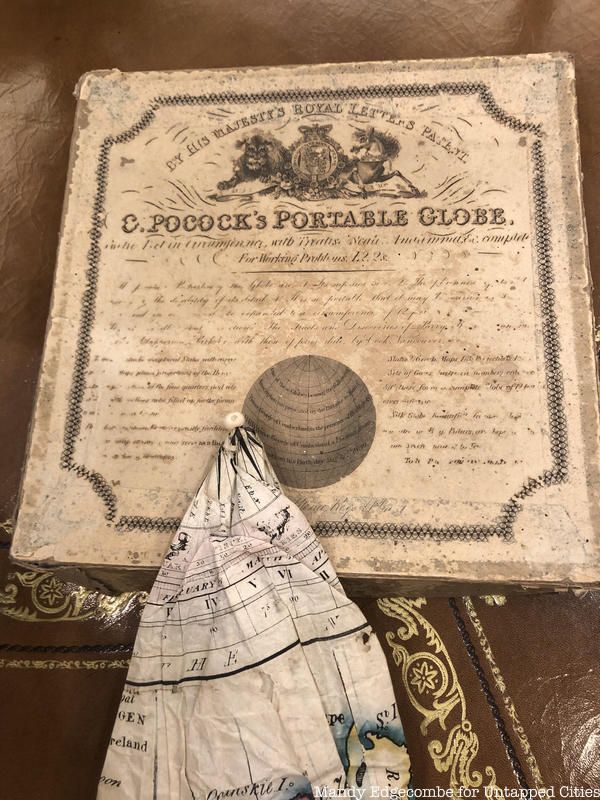
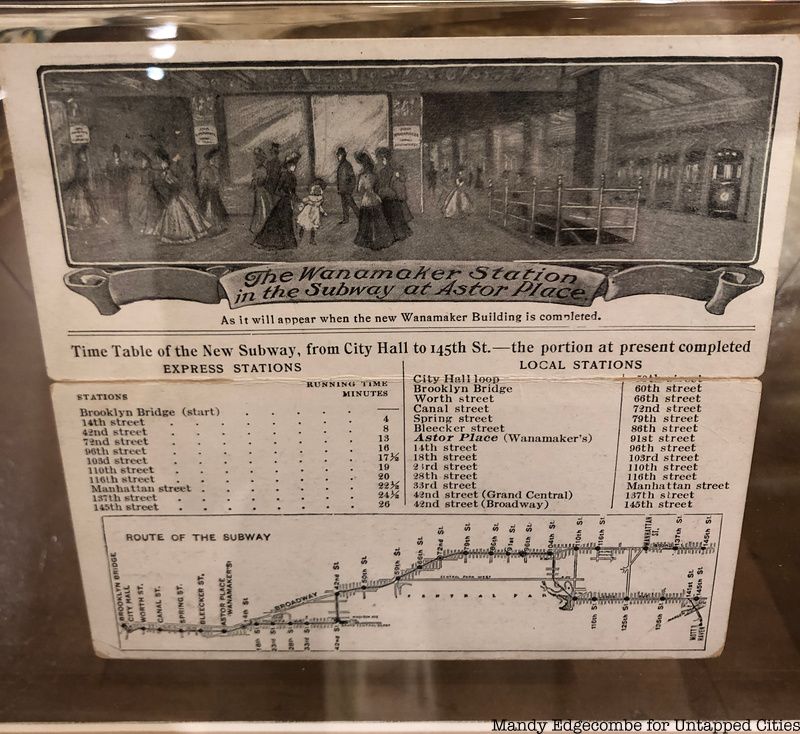
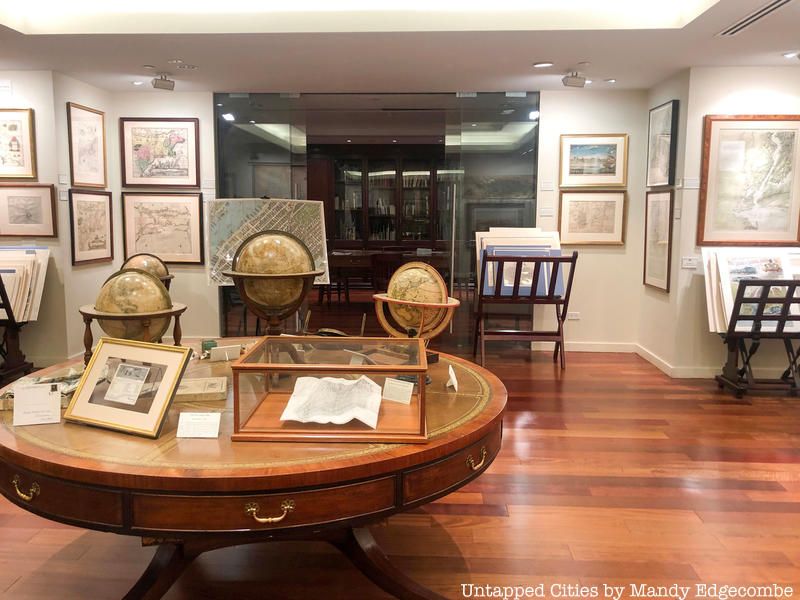
The gallery provides a broad overview of New York’s transformation from colony to city with stunning examples of cartographic art and unique historic artifacts.
To learn more about the history of the subway system, and ride through the now-abandoned City Hall Station, you can join an upcoming Untapped Cities’ Underground Tour of the NYC Subway!

Underground NYC Subway Tour
Ride through the oldest stations, uncover hidden art, and more!
Next, check out The Top 10 Secrets of the NYC Subway and Remnants of Former City Hall Subway Station Are Still Visible in City Hall Park.

